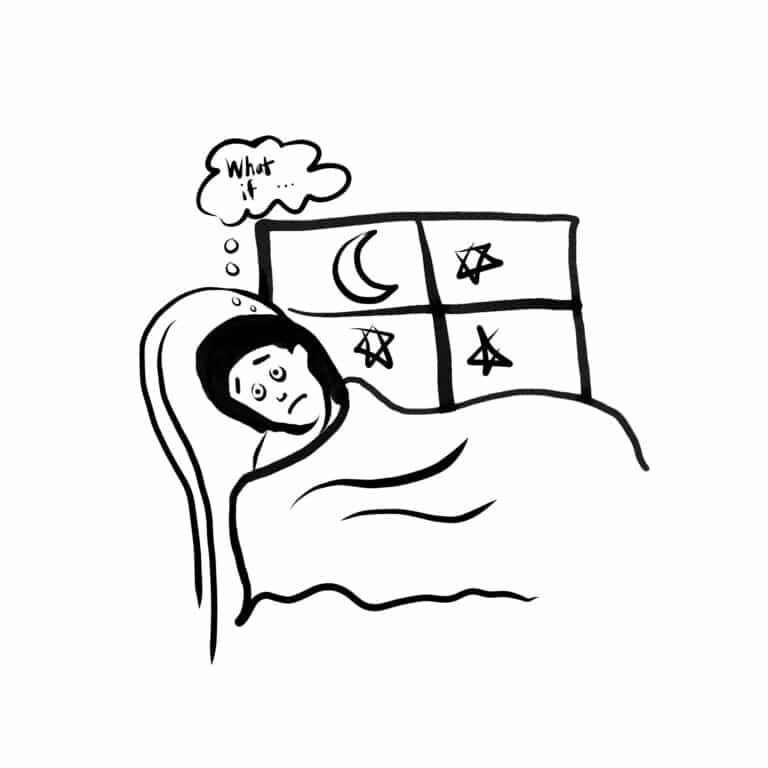
How Going Gluten-Free Transformed our Home
Hi, I’m Melissa, Beth asked me to explain how going gluten-free made a difference in our household. I have a

Most parents, when handed their newborn, wonder how they will ever be able to do a good job of raising their precious child. Having two children, one neurotypical and one with dyslexia, I know that parenting a child with dyslexia brings with it a truckload of extra anxiety.
I’m not a psychologist. I know that there are many levels of anxiety. What I’m talking about here is the high-functioning type of anxiety that leads to rumination in the middle of the night. Things always seem worse at 4 in the morning.
I have periods of intense focus on my son’s issues. Sometimes this helps, sometimes it doesn’t. In this post-Covid19 world, the worries of life jostle for my attention and I often lose focus on where I am heading. Often, helping him feels like two steps forward and one step back.
When I get stuck or go down the rabbit hole of ‘what ifs,’ I remember all I have is this moment.
The fridge magnet quote attributed to Eleanor Roosevelt goes:
Enjoy it?
Did Eleanor b##### Roosevelt have a kid with dyslexia?
I Googled her to find out. She had six kids, a cheating husband, and an overbearing mother-in-law, and she suffered from depression. So, hey, she earned the right to offer advice on the benefits of living in the present.
Are you a shallow breather?
I am.
When you put your hands on your belly and breathe, you should feel your belly going up and down. Breathing deeply like this is the best way to relax.
There are hundreds of sites on the web that will teach you how to practice mindful breathing. Here’s some advice from one I’m trying.
https://anxieties.com//57/panic-step4
Raising a child with dyslexia, and especially one with dyslexia and ADD/ADHD, can be isolating.
Does your child get invites to birthday parties? Sleepovers? If not, watching their social isolation from the sidelines is heartbreaking. I’ve found joining Facebook groups for parents of children with dyslexia and ADD helpful. One I particularly like is:
https://www.facebook.com/groups/dyslexiasupportforparents
I found my tribe there, and I value the comments and generous sharing of ideas.

You want the best for your child.
Do you wonder if things would improve if you just bought another book or joined a support group?
I’m all for investing in your child, but it’s important to appreciate you can’t beat yourself up about your limitations.
I read an excellent post on this by Dr Selznick on
Dr Selznick likened parenting to working in the theatre. Maybe his analogy appealed to me because I volunteer at my local theatre. He said it’s important to remember that your child is the main actor and that you are only part of the support crew. In other words, your child’s life is not yours. Do what you can to ensure the show goes on, but the play is up to them.
Maybe at the moment your child’s play looks like a melodrama or a tragedy. If, like me, you are parenting a teen, it can be both within an hour.
The thing is, there are still plenty of scenes still to be written.
Think back to what you were worrying about a year ago.
Can you even remember?
Worrying at 4 AM will not affect the outcome. This is your child’s life, not yours. There is only so much you can do to help.
Have you heard of the Serenity prayer?
In 1933, Reinhold Niebuhr wrote a prayer that is used today in many support groups. It goes like this:
I suspect he based this prayer on the wise words in the line from the Lord’s prayer:
Give us this day our daily bread.
In other words, let’s not worry about tomorrow’s bread, only today’s. One day at a time is all we can handle.
The quickest way to dump the worry monsters is to write them down. If that is a challenge for you, dictate them to your phone.
I use Evernote to keep my notes in order.
https://evernote.com/download“>https://evernote.com/download
Getting up at 4 AM and making notes is better than lying awake. Have a hot drink, then go back to bed.
Parenting is an exhausting marathon, not a quick sprint. If you are going to go the distance, it is essential to look after yourself and get enough sleep. Getting enough exercise is also important for good sleep patterns.
One friend of mine, Ange, whose son has a severe disability, discovered she could beat her parental anxiety by a daily swim in the sea.
Hey, each to their own. I swim like a brick; Pilates is my jam. But I agree with Ange; regular exercise helps beat parental anxiety.
It’s 5 AM now.
P.S.
If your worrying is out of control, seek professional help. Don’t let it spoil your life.

Hi, I’m Beth. Seven years ago, when I discovered my son had dyslexia, I had a ‘light-bulb’ moment and understood this explained many of my own difficulties. Ever since, I’ve been on a mission to discover the best ways to wrestle what I like to call the dyslexia octopus.

Hi, I’m Melissa, Beth asked me to explain how going gluten-free made a difference in our household. I have a

I need nighttime anxiety relief. It’s 4 AM, and I’m reviewing what happened to Harry at school yesterday and wondering